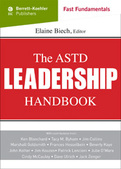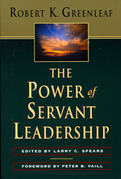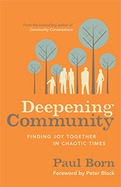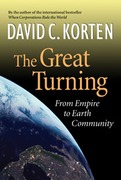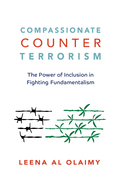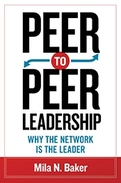The Power of Servant Leadership is a collection of eight of Greenleaf's most compelling essays on servant-leadership. These essays, published together in one volume for the first time, contain many of Greenleaf's best insights into the nature and practice of servant-leadership and show his continual refinement of the servant-as-leader concept. In addition, several of the essays focus on the related issues of spirit, commitment to vision, and wholeness.
2014
In this thoughtful and moving book, Paul Born describes the four pillars of deep community: sharing our stories, taking the time to enjoy one another, taking care of one another, and working together for a better world. To show the role each of these plays, he shares his own stories—as a child of refugees and as a longtime community activist.
It's up to us to create community. Born shows that the opportunity is right in front of us if we have the courage and conviction to pursue it.
2007
Al Olaimy sets the stage by providing a quick, thoughtful grounding in the birth of Islam in a barbaric Game of Thrones–like seventh-century Arabia, the evolution of fundamentalist thought, and the political failures of the postcolonial period. She shows that terrorists are motivated by economic exclusion, lack of opportunity, social marginalization, and political discrimination. This is why using force to counter terrorism is ineffective—it exacerbates the symptoms without treating the cause. Moreover, data shows that military interventions led to the demise of only 12 percent of religious terrorist groups.
Combining compelling data with anecdotal evidence, Al Olaimy sheds light on unorthodox and counterintuitive strategies to address social woes that groups like ISIS exploit. For example, she describes how Indonesia, the world's most populous Muslim country, has decreased terrorism while paradoxically becoming more overtly religious. Or how Mechelen, the city with Belgium's largest Muslim population, adopted integration policies so effective that not one of its 20,000 Muslims left to join ISIS. Using religion, neuroscience, farming, and even love, this book offers many inspiring examples and—for once—an optimistic outlook on how we can not just fight but prevent terrorism.
The idea of hierarchy is breaking down everywhere, from politics to religion to social relationships-why should leadership be any different?
- Shows that a radically decentralized approach can revolutionize leadership just as it has revolutionized computer networking
- Turns leadership on its head-the job of the leader is not to tell followers what to do but to create, enable, and facilitate a network of peer leaders
- Features examples of what some organizations are doing and what all organizations can do to implement and benefit from this new approach
Our leadership models are still stuck in a top-down, command-and-control, Industrial Age mentality. But our globalized, data-drenched, 24/7 world is just too complex, with too much information coming from too many different directions, for any single person or group of people to stay on top of it. The idea of hierarchy is breaking down everywhere, from politics to religion to social relationships-why should leadership be any different?
Mila Baker's inspiration for a new way to lead is the peer-to-peer model of computing, which is also mirrored in social networking and crowdsource technologies. She shows that a network with "equipotent" nodes of power-think peer leaders-is infinitely more powerful than a "client-server" (leader-follower) network.
In organizations of equipotent nodes, leadership isn't fixed or siloed-it shifts based on the particular strengths of individuals and the particular needs of a situation. Rather than being guided into narrow predetermined channels, information flows freely so those who need it can find it easily and are empowered to act on it immediately. Constant change is built into the very structure of these organizations, and giving feedback is no longer a separate (and often dreaded and ineffective) process but becomes an organic part of the workflow, enabling rapid course corrections.
Baker still advocates the need for top-level executives and senior leaders, but their job is to optimize the health of the network rather than issue commands. Companies such as Gore and Herman Miller practice these principles and have achieved long-term success-Baker provides a structure for this approach that any organization can adapt to build flexibility, resiliency, and accountability.


